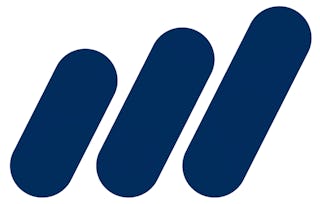The "Classification Analysis" course provides you with a comprehensive understanding of one of the fundamental supervised learning methods, classification. You will explore various classifiers, including KNN, decision tree, support vector machine, naive bayes, and logistic regression, and learn how to evaluate their performance. Through tutorials and engaging case studies, you will gain hands-on experience and practice in applying classification techniques to real-world data analysis tasks.

Classification Analysis

Classification Analysis
This course is part of Data Analysis with Python Specialization

Instructor: Di Wu
2,668 already enrolled
Included with
Recommended experience
What you'll learn
Understand the concept and significance of classification as a supervised learning method.
Identify and describe different classifiers, apply each classifier to perform binary and multiclass classification tasks on diverse datasets.
Evaluate the performance of classifiers, select and fine-tune classifiers based on dataset characteristics and learning requirements.
Skills you'll gain
Details to know

Add to your LinkedIn profile
7 assignments
See how employees at top companies are mastering in-demand skills

Build your subject-matter expertise
- Learn new concepts from industry experts
- Gain a foundational understanding of a subject or tool
- Develop job-relevant skills with hands-on projects
- Earn a shareable career certificate

There are 6 modules in this course
This week provides an overview of classification as a supervised learning method. You will also learn the K-Nearest Neighbors (KNN) algorithm, understanding its principles and applications in classification tasks.
What's included
2 videos5 readings1 assignment1 discussion prompt
This week you will explore the Decision Tree algorithm, learning its structure, construction, and applications in classification problems.
What's included
1 video3 readings1 assignment1 discussion prompt
This week focuses on the Support Vector Machine (SVM) algorithm, where you will grasp its principles and how it is used for classification.
What's included
1 video3 readings1 assignment1 discussion prompt
This week will delve into two essential classifiers: Naive Bayes and Logistic Regression. You will gain insights into their assumptions, strengths, and applications.
What's included
2 videos6 readings2 assignments
This week you will learn how to evaluate the performance of classifiers using various metrics and visualization techniques.
What's included
1 video1 assignment
In this final week, you will apply the knowledge and techniques learned throughout the course to solve a real-world classification problem through a comprehensive case study.
What's included
2 readings1 assignment1 discussion prompt
Earn a career certificate
Add this credential to your LinkedIn profile, resume, or CV. Share it on social media and in your performance review.
Instructor

Offered by
Explore more from Data Analysis
 Status: Free Trial
Status: Free TrialCorporate Finance Institute
 Status: Free Trial
Status: Free Trial Status: Free Trial
Status: Free Trial Status: Free Trial
Status: Free TrialUniversity of Washington
Why people choose Coursera for their career

Felipe M.

Jennifer J.

Larry W.

Chaitanya A.

Open new doors with Coursera Plus
Unlimited access to 10,000+ world-class courses, hands-on projects, and job-ready certificate programs - all included in your subscription
Advance your career with an online degree
Earn a degree from world-class universities - 100% online
Join over 3,400 global companies that choose Coursera for Business
Upskill your employees to excel in the digital economy
Frequently asked questions
To access the course materials, assignments and to earn a Certificate, you will need to purchase the Certificate experience when you enroll in a course. You can try a Free Trial instead, or apply for Financial Aid. The course may offer 'Full Course, No Certificate' instead. This option lets you see all course materials, submit required assessments, and get a final grade. This also means that you will not be able to purchase a Certificate experience.
When you enroll in the course, you get access to all of the courses in the Specialization, and you earn a certificate when you complete the work. Your electronic Certificate will be added to your Accomplishments page - from there, you can print your Certificate or add it to your LinkedIn profile.
Yes. In select learning programs, you can apply for financial aid or a scholarship if you can’t afford the enrollment fee. If fin aid or scholarship is available for your learning program selection, you’ll find a link to apply on the description page.
More questions
Financial aid available,

